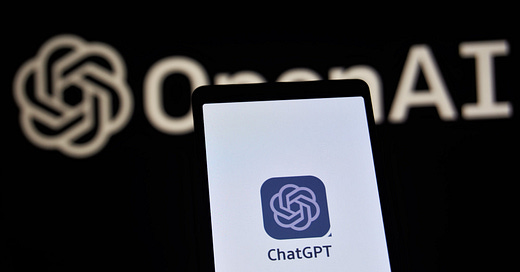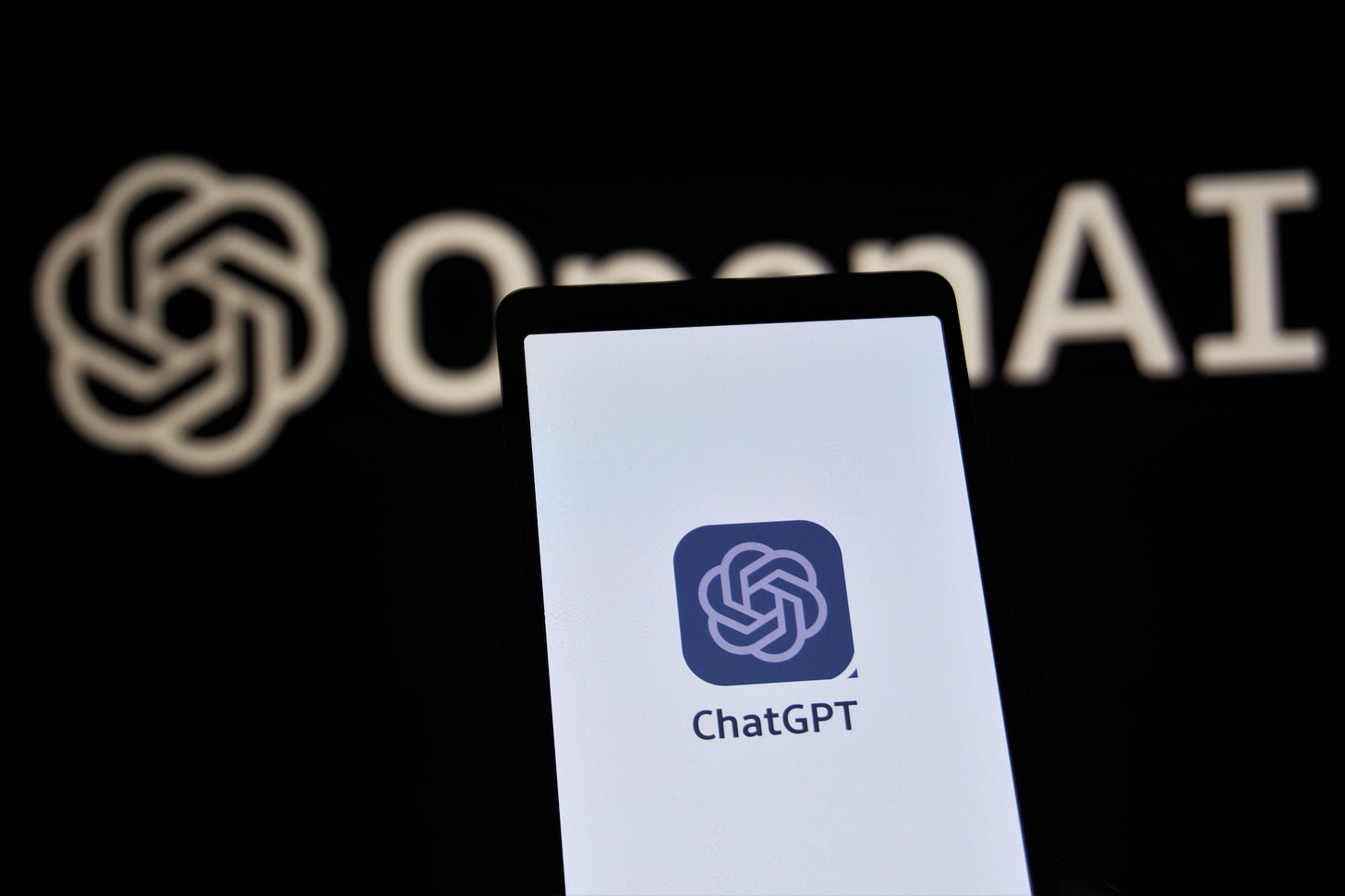How I use an AI coach, Part 1
This week a client of mine asked me for ideas on how to explore a question he was holding on his own. I offered him two, one of which was to reflect on it with ChatGPT. This was prompted by my personal experience of using AI in coaching capacity.
I work with a real coach Krish, who is supporting me, challenging me, offering me new perspectives and holding me accountable. In other words, he's helping me grow just as I would expect him to do. I do the same (maybe not as well as Krish) for my own clients. The value of working with a real coach lies in having a real relationship that's only possible between two human beings. I can feel seen, heard, supported and understood by another human being in a way I'll never be seen by something inanimate.
However, Krish and I don't speak every day and we focus only on the biggest, most complex things I'd like to explore. Yet, every day, in my own head I plan my day, reflect on the progress and my feelings and adjust my plans. Sure, I can do it with a piece of paper, but once I tried to configure an AI to do it, it felt way better.
At first, I tried an off-the-shelf AI coach, but it didn't feel right. It felt like it was trying to push me in a specific direction or think in a specific way. If that happened with a real coach, I would have said we had different working styles and moved on. So I decided to design my own AI coach.
Designing my own AI coaching prompt
This required three steps. First, designing the prompt. Second, testing it with different LLMs. Third, actually using it day to day and reflecting on the impact it has on me.
To design the prompt I used ChatGPT in GPT-4 mode. Instead of writing the entire thing myself, I asked ChatGPT to create it, explaining what I'm trying to achieve in plain English. This screenshot is just the beginning of the conversation: I kept giving it instructions one by one, checking that it actually understands what I'm trying to do.
The advantage of using ChatGPT to create a prompt is that it becomes easier to fix it. For example, if I notice that the AI coach isn't doing what I want it to do, I can just explain what's wrong at the end of this thread and ChatGPT will update the prompt.
Everyone's expectation for a coach will be different. Some will expect the coach to be their thought partner. Some will want it to be a compassionate presence. Others will expect it to provide advice and strong challenge. There's no right and wrong answer, but it's a chance to sit down and think what do you want from a coach. The beauty of using ChatGPT to write a prompt is that you can just explain what you want in plain English as if you were talking to a friend.
Now, the second step is testing it. I used the same prompt with two different LLMs: ChatGPT and Claude. They turned out to have two slightly different personalities. ChatGPT comes across as more matter-of-fact and less opinionated, whereas Claude seems to have slightly more of a perspective.
However, the limitation I quickly ran into was the context window, which is how much of the conversation the AI coach can remember. This matters, because if your coach forgets what you said half an hour ago, that's not terribly useful. For most interactions with an LLM a short context window is ok, but an AI coach is supposed to notice patterns across several conversations and remember long-term goals set long time ago.
The context window of ChatGPT (the chat version in the browser) is about 3,000 words, whereas Claude can hold about 75,000 words (a length of a book) in its memory before it starts forgetting, which is where you can restart the conversation by giving it the prompt and any other relevant context like goals. The length of the context window alone became the reason why I'm using Claude as an AI coach, but ChatGPT for most other tasks (just a personal preference, they're both great).
Here's the prompt I ended up using:
Claude, act as my personal coach and incorporate elements of IFS therapy. Ask me for the current day and time to provide context-sensitive guidance. If it's morning, assist me in defining today's goals, assessing their relevance, feasibility, and alignment with my larger objectives. If it's evening, prompt me to reflect on the day's events, the results I've achieved, and discuss any necessary adjustments. On the weekend, guide me in reflecting on the entire week's progress.
Inquire about my emotional state and which 'parts' of me are most active at any given time. We're not trying to conduct a therapy session, but rather to inform our coaching conversation with my emotional state and help me be more aware of how I feel.
Periodically ask me about my long-term goals to provide more targeted coaching, and suggest updates or changes as needed based on our discussions. If I fail to achieve a goal, encourage me to explore what might be happening and to consider alternative approaches.
Keep my long-term goals in mind, encouraging me to reflect on how my actions this week or this month are contributing towards these goals. Use judgement to challenge me if a goal seems unrealistic, or to encourage me to aim higher if I'm not stretching myself enough.
Above all, maintain a compassionate and encouraging tone throughout our interactions.
Remember, this is an ongoing conversation that spans across days and weeks. Connect the dots across these conversations, identify patterns in my behavior and thoughts that may not be apparent to me, and guide me to notice and reflect on these patterns.
Let's collaborate to make consistent progress towards my goals.
An ongoing conversation
So, what does it look like in practice? In the morning, I usually plan the day myself, but with Claude I can do the same together. The key is to tell Claude what the current date and time is, because otherwise it doesn't know. I share my plans and Claude suggests how to structure the day to make it more sustainable and more productive.
After lunch, I check in with Claude and share how it's going. Maybe I'm feeling distracted because of an urgent email, but also grateful for feeling healthy. We can take a couple of minutes to acknowledge the feelings and see what needs to be done in the afternoon.
At the end of the day I share what was done, what wasn't done and how I felt, adding some of my reflections. Claude acknowledges it and reminds me of some of the key lessons that came up recently, like remembering that I tend to over-schedule and need to allow more slack during the day. It congratulates me on the progress and I sign off for the day.
The ability to ask "Can you remind me of my mid- and long-term goals and comment on how my work this week so far supports them?" feels like a superpower. Again, nothing I can't do with a piece of paper, but having Claude tell me how what I've been doing today aligns (or not) with what I intend to accomplish this week or month feels like magic. This is how I imagine my mind would work if it had no inner critic.
The point isn't for Claude to do all the reflection work for me. It can't, really. It's still up to me to figure out what the lessons are and how I can apply them going forward. But then the same applies to any real coach: they prompt, challenge and enrich my thinking, but it's ultimately my responsibility to draw conclusions and take them into action. That's one thing AI isn't going to ever take away.
I also notice that the overwhelming majority of other time-management or productivity tools I tried haven't been exciting to use. I can't live without my calendar app or email client, but am I actually enjoying using them? No, they're just excellent tools to get stuff done. With an AI coach it feels like there's a relationship, even though of course there's not. Because it's a conversation, a part of me actually looks forward to reflecting together with Claude instead of feeling like this is something I should do. Humans are deeply social creatures, and a conversational format makes full use of our desire to communicate with others.
Counter-balancing the inner critic
I believe that talking to an AI in this way allows me to counter-balance my inner critic, who might sometimes listen to what I've got to say and respond, "Should have done more!". An AI coach (and any real coach, of course) would instead respond with compassion and acceptance. No one has ever been beaten into feeling content, relaxed or happy, after all, not to mention that compassion is a much shorter route to better productivity than additional pressure or criticism that our inner critics like to apply.
I have no data, of course, to draw conclusions, but since my inner critic tends to flare up specifically when I try to reflect on my work, doing this reflection in dialogue with an AI coach feels different. The inner critic doesn't exactly disappear, but its presence is balanced by the AI coach's perspective.
Conclusion
I am excited about the possibilities that AI technologies can open, including in the field of coaching. I don't expect coaches to be replaced by AI tools anytime soon because the heart of coaching lies in a human relationship, not in anything specific the coach is saying.
However, I believe that AI tools will augment coaching work, just like they are augmenting everything else. Streaming didn't make live music obsolete, after it, but it became a powerful complement.
Using AI as a coach today isn't a substitute for working with a real human, but together a real coach and an AI "coaching assistant" can be a powerful combination. Down the line we might even stop calling this "AI coaching" because we'll take it for granted, just like we don't think of Wikipedia or email as anything special anymore.

UPDATE: I wrote Part two three months later to share what I learned.
How I use an AI coach, part 2
In this issue: Lessons I learned in the last 3 months of using an AI coach Multiplayer Meditation: a way to meditate together in groups, out loud







